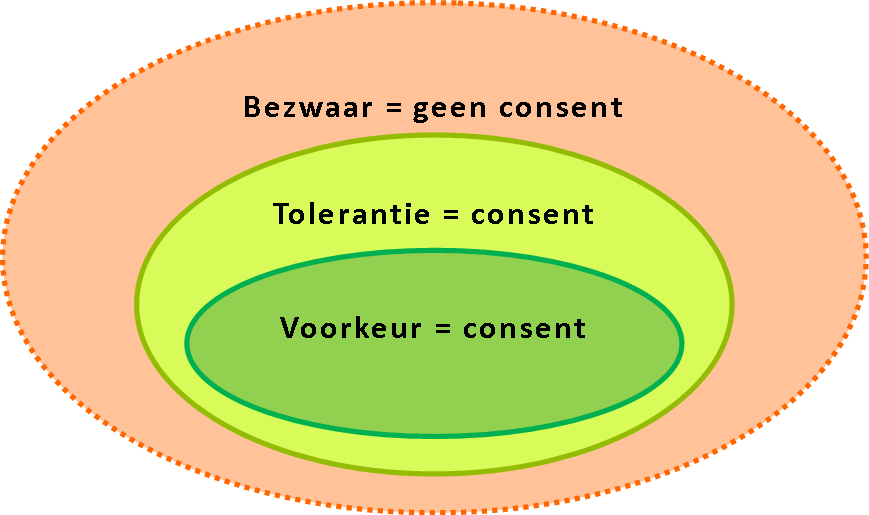One of the core principles of sociocracy is decision-making through consent.
¶ What is consent based decision-making?
Making decisions through consent means that a proposal is accepted if no one in that group or circle has objections.
Objections are reasons why a proposal could harm the goals of a group. Objections are not a problem, but rather an opportunity to improve the proposal. Any objection is taken seriously and taken into account in the decision-making process.

¶ Why does Extinction Rebellion use consent based decision-making
Decisions can also be made in other ways. For example by majority vote. However this may result in the opinion of (a large) part of the group being ignored.
Another option is making decisions through 'consensus.' This means that everyone has to agree with an idea before it can be implemented. That seems fair and inclusive, but it also takes a lot of time and can be rather frustrating, especially in large groups.
Consent based decision-making lays between consensus and majority voting. Consent ensures efficient decision-making while at the same time allowing for objections and differences in opinions.
¶ The process of consent based decision-making
Making decisions through consent happens in three rounds.
-
Present the proposal and allow for clarifying questions: The proposal is presented,explained. After this all circle members will have the opportunity to ask questions to better understand the proposal. This prevents misunderstandings and ensures that everyone talks about the same thing.
-
Quick reaction round: Each member briefly gives their opinion on the proposal. This serves a temperature check of the group and allows space for quick feedback.
-
Decision-making round: Each member has the opportunity to object to the proposal. If there are objections, they are taken seriously and we'll look for ways to resolve them. If there are no major objections, the proposal will be adopted.
Do you want to learn more about decision-making through consent? Continue reading in English at sociocracyforall.org